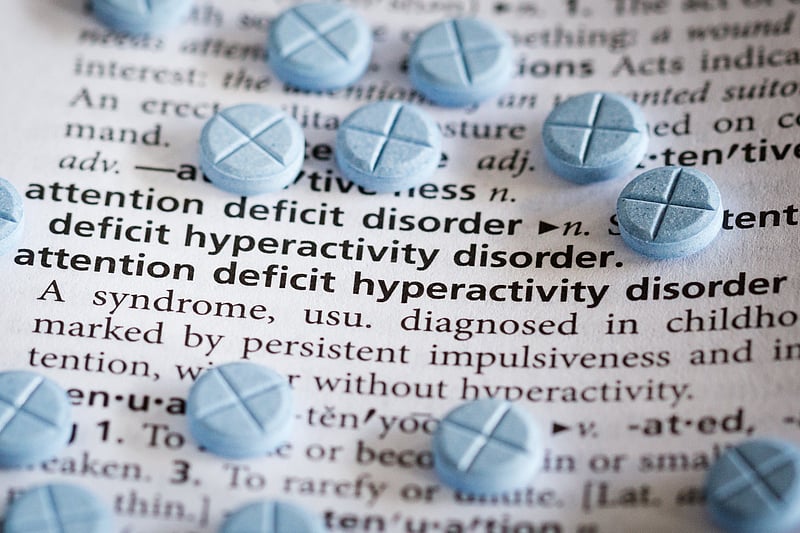Get Healthy!

- Denise Mann
- Posted October 11, 2023
Narcolepsy Drug Might Be New Treatment Option for ADHD
A medication already approved for excessive daytime sleepiness may help ease attention-deficit/hyperactivity disorder (ADHD) symptoms in adults who aren't getting relief from available treatments, according to a small pilot study.
Solriamfetol is a nonstimulant drug that is approved for sleepiness caused by narcolepsy (sudden sleep attacks) and obstructive sleep apnea (marked by breathing lapses during sleep).
"The pilot study is very promising, but more research is needed before this medication can be recommended or approved for adults with ADHD,"said study author Dr. Craig Surman. He is the director of the clinical and research program for adult ADHD at Massachusetts General Hospital and an associate professor of psychiatry at Harvard Medical School, in Boston.
For the study, 60 adults with ADHD took 75 or 150 milligrams of solriamfetol or a placebo for six weeks. They were interviewed about ADHD symptoms throughout the study and filled out self-reports. By the end of the study, more folks taking solriamfetol showed improvements in ADHD symptoms than those who took the placebo.
The drug's makers, Jazz Pharmaceuticals and Axsome Therapeutics, funded the study.
In the United States, as many as 10 million adults have ADHD. They may have difficulty paying attention, impulsiveness and trouble with executive functions such as analyzing, organizing and planning -- problems that can hinder success at school, work or in personal relationships, according to Children and Adults with Attention-Deficit/Hyperactivity Disorder (CHADD).
Currently, ADHD in adults is treated with a combination of medication and behavioral therapy. Medications include stimulant drugs like Adderall and Ritalin and nonstimulants. "Not everyone tolerates the drugs that are available, so the more options there are, the better for adults with ADHD,"Surman said.
Solriamfetol increases dopamine and norepinephrine, brain chemicals that help control sleep and wakefulness. Available ADHD medications also target these brain chemicals.
Mild side effects included decreased appetite, headache, insomnia and stomach woes. But few people stopped taking the drug due to these side effects, he said.
Solriamfetol did not affect heart rate or blood pressure. "Stimulants tend to increase heart rate and blood pressure. In the doses we tested, we found beneficial effects without changes in heart rate and blood pressure,"Surman noted. This is important as ADHD medications are taken long term.
Adult ADHD does not get as much attention as ADHD in kids, but it can have pronounced effects on health and quality of life. "Adults with untreated ADHD lead last-minute, reactive lives that can impact what time they get to bed or what they eat during a busy week, all of which can affect their health," he explained.
Treatment of adult ADHD comprises "pills and skills,"Surman said. Medication and behavioral interventions work together to provide symptom relief and improve day-to-day functioning.
"Behavioral therapies are homework, and people with ADHD have trouble doing homework if they are not adequately treated,"he said.
The study was published Oct. 9 in the Journal of Clinical Psychiatry.
It makes sense that this drug shows promise in treating adult ADHD, said Dr. Deepti Anbarasan, a clinical associate professor of psychiatry and neurology at NYU Langone Health in New York City.
"Its mechanism of action is similar to medications used in ADHD,"said Anbarasan, who has no ties to the new research.
The drug was about as effective as stimulants and appears to be more effective than nonstimulant medications based on this study, although it was not a head-to-head comparison, she said. "If these results play out in other studies, it would be the first nonstimulant ADHD medication that seems to be somewhat comparable to stimulants,"Anbarasan noted.
There are other benefits to having options such as nonstimulants, she said.
"There is currently a stimulant shortage, and stimulants are considered controlled substances, so you can only get a 30-day supply,"Anbarasan said. This means monthly refills; nonstimulant ADHD medications don't have such stringent rules.
More information
Children and Adults with Attention-Deficit/Hyperactivity Disorder (CHADD) has more on treating adult ADHD.
SOURCES: Craig Surman, MD, director, clinical and research program, adult ADHD, Massachusetts General Hospital, and associate professor, psychiatry, Harvard Medical School, Boston; Deepti Anbarasan, MD, clinical associate professor, psychiatry, neurology, NYU Langone Health, New York City; Journal of Clinical Psychiatry, Oct. 9, 2023







